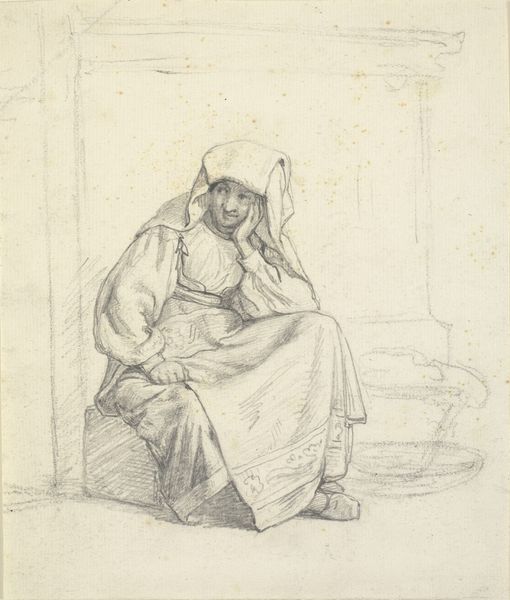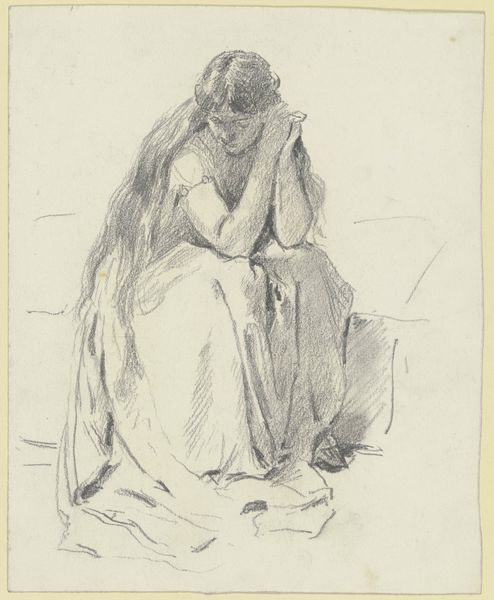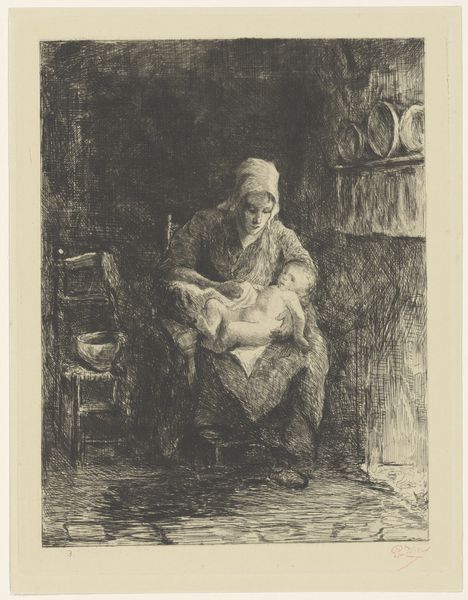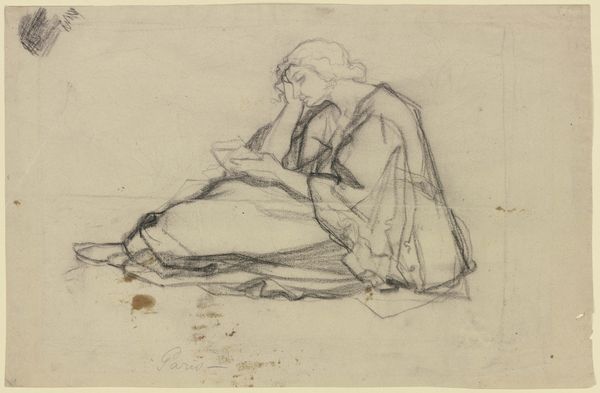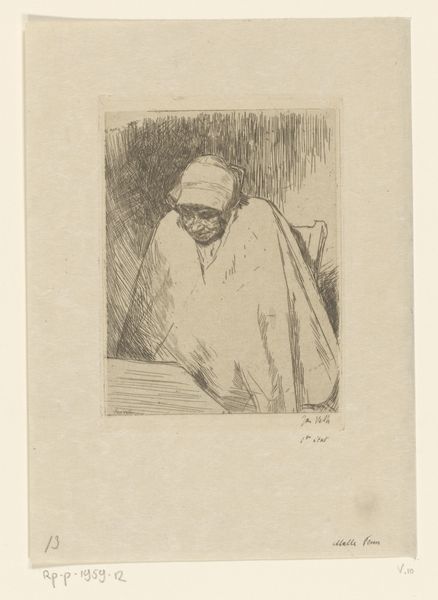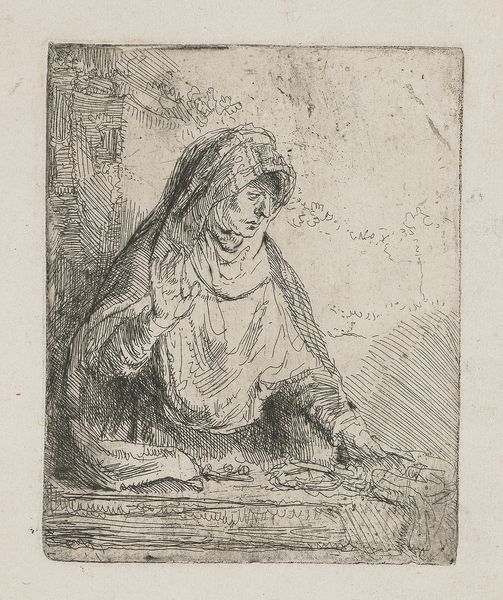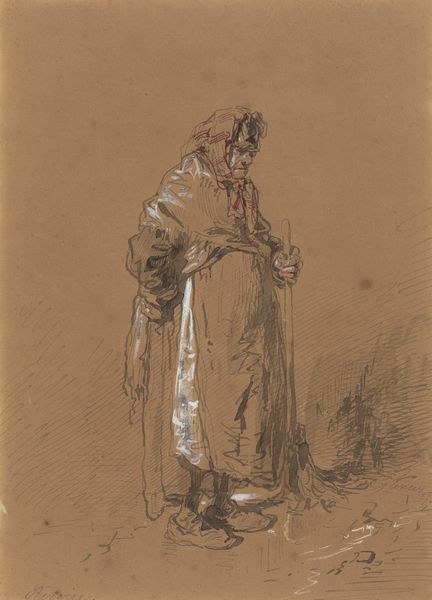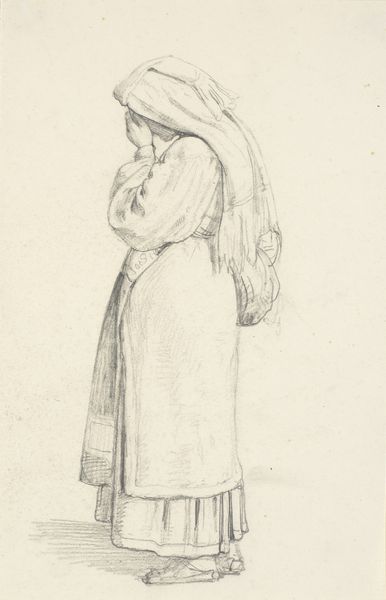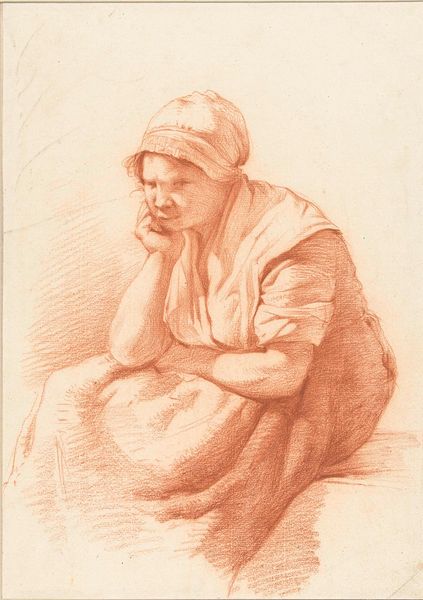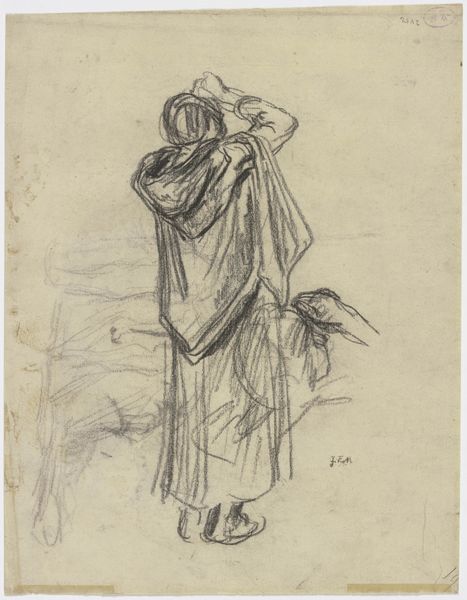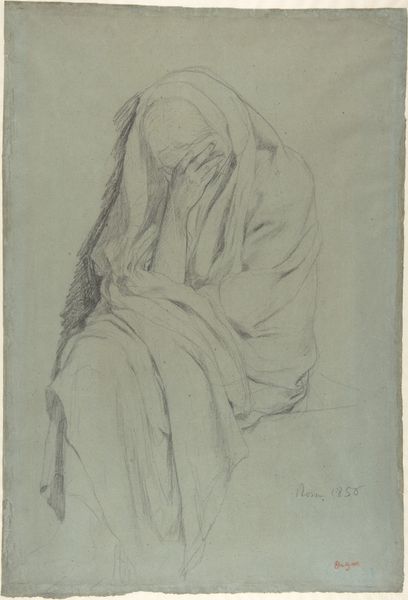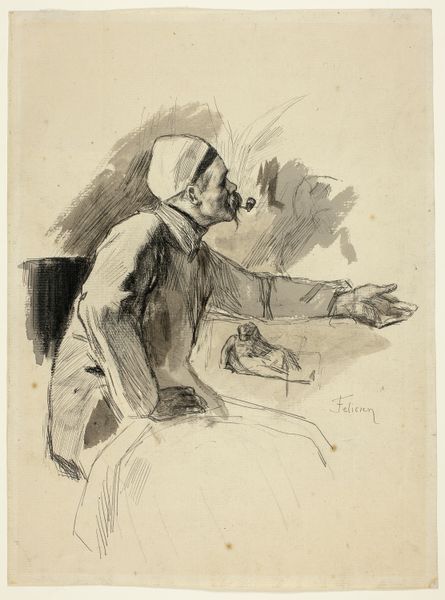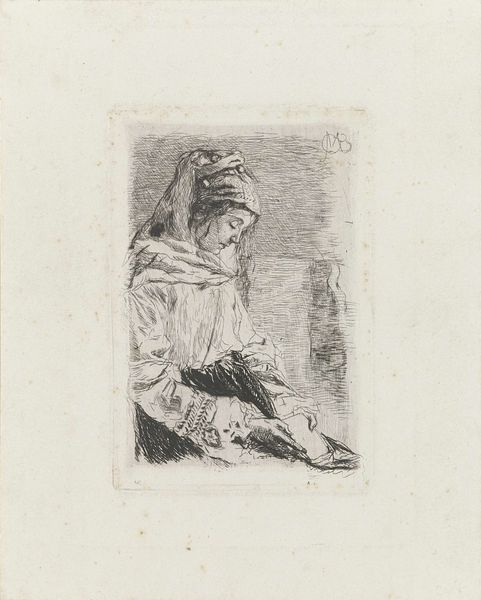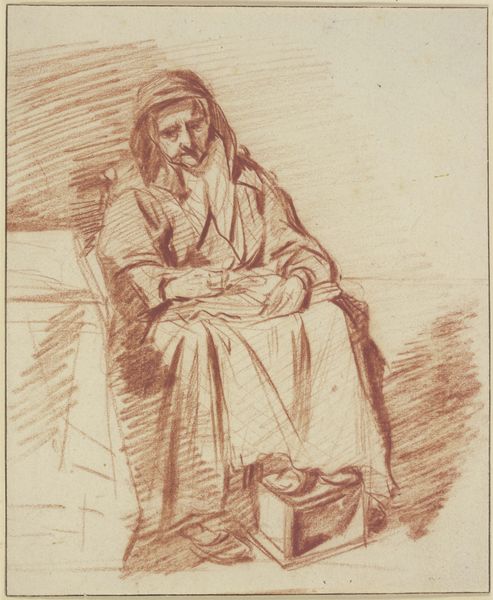
drawing, print, paper
#
drawing
#
amateur sketch
#
light pencil work
# print
#
pencil sketch
#
paper
#
personal sketchbook
#
idea generation sketch
#
ink drawing experimentation
#
detailed observational sketch
#
france
#
water
#
sketchbook drawing
#
pencil work
#
sketchbook art
Dimensions: 308 × 186 mm
Copyright: Public Domain
Editor: Here we have Charles Bargue's "Seated Arab," created around 1850, using print on paper. The light pencil work creates such a feeling of transience, like a fleeting glimpse of a person caught in a moment. How do you interpret this work? Curator: Considering the context, remember 19th-century France's fascination with the "Orient," fueled by colonial ambitions. How do you think this drawing participates in, or perhaps resists, that orientalist gaze? Editor: That's a really interesting point, I hadn't thought about it that way. I guess, looking at it now, there is a degree of... distance. It doesn't feel like a personal portrayal. Curator: Exactly. Bargue, though, aimed for academic precision, used in training other artists. This print likely served that purpose. What does it tell us about artistic training at that time, focusing on reproducing "types"? Editor: So, rather than individual expression, it was about learning established techniques through studying figures seen as…representative? Did this standardized approach play a role in shaping the visual culture and potentially reinforcing stereotypes of the time? Curator: Precisely. Art wasn't produced in a vacuum, and this piece gives insight to what aesthetics were being promoted during this time in France. Even a seemingly simple drawing reveals power structures within art institutions and their public implications. Editor: It's fascinating how one drawing can open up so many layers of cultural and historical interpretation. It changes my perspective of how to appreciate art, because now I feel I need to consider broader social and cultural contexts. Curator: Indeed. And it's also important to recognize how even educational artworks had their own position in political and cultural contexts.
Comments
No comments
Be the first to comment and join the conversation on the ultimate creative platform.
